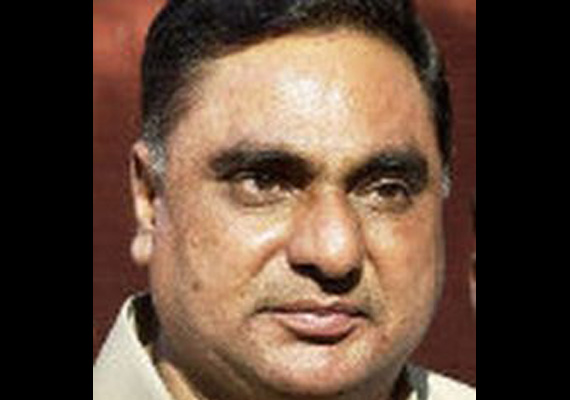After losing the Delhi Assembly battle to the Aam Aadmi Party, the Bharatiya Janata Party should play smart politics while electing a suitable Leader of Opposition. This position is significant and if the saffron brigade has failed to come to power in the city, it is primarily due to several wrong decisions. The party has secured eight seats, one more than what is required for the position of LoP in the 70-member House, and unless a prudent choice is made, many
One of the principal reasons for Sheila Dikshit continuing in office for 15 long years, spread over three terms, was that the BJP, at various levels, faltered on its strategy. At one stage, there was an impression that was created that the party’s central leadership was soft on the Congress Chief Minister and thus had struck an informal deal with her. Jagdish Mukhi (now Assam Governor), who was the Leader of Opposition for two of her terms, was often referred to as her eighth minister, given the cordial relations he had with her.
However, this was an unfair perception since Mukhi has been a loyal worker of the Sangh Parivar, having won multiple times from Janakpuri. He was rewarded with the gubernatorial assignment for being a staunch supporter of Narendra Modi.
The position of the Leader of Opposition is most important, primarily because it allows the principal adversarial party to prepare for the future. In 2003, the BJP had projected Madan Lal Khurana as its Chief Ministerial nominee, but the party lost to the Congress, since there was large scale internal sabotage. A top BJP leader was said to be hand-in-glove with the ruling dispensation of that time, and ensured that distribution of tickets was questionable. Worse still was the fact that when Khurana emerged as the natural choice of the Leader of Opposition in the Delhi Assembly, he was exiled from active politics and appointed as the Governor of Rajasthan.
It was crystal clear that someone in the BJP wanted Dikshit to have a comfortable journey, which otherwise would have been disrupted had Khurana remained in the Assembly. At that point, the BJP stalwart was undoubtedly the tallest leader of Delhi, and his remaining in the capital would have made matters extremely difficult for Dikshit. Amongst the bureaucrats, he had tremendous clout and they could never have afforded to ignore him, thus contributing to the woes of the Congress.
From the very beginning, Khurana was disconsolate with his new elevated status describing his plight vividly; he would bemoan that he had been imprisoned in a gilded cage while all he wanted was to be a poojari in the temple, which Delhi had always been for him. For the BJP, Khurana’s shifting had its downside. The party continued to remain in the Opposition so far as Delhi Assembly was concerned.
However, in 2014, a golden opportunity knocked on the saffron party’s door, when Arvind Kejriwal, after a short stint as the Chief Minister, resigned. The BJP had 32 MLAs, the AAP had 28 MLAs, and the Congress eight. Six out of the eight Congress MLAs agreed to support the BJP, if Ramvir Singh Bidhuri was made the Chief Minister. The matter was virtually sealed, but at the eleventh hour, the saffron party had second thoughts. Mukhi was then introduced as a likely CM, expected to also receive the backing of six of the eight Congress MLAs.
At this juncture, a senior BJP leader, close to the top leadership, intervened, preventing the formation of the government. His apprehension was that a person whose candidacy he did not endorse might become a larger-than-life figure, gaining a greater stature than him. This leader’s self-interest cost the BJP the government. In 2015, when the polls took place, the BJP was wiped out, with AAP scoring an unprecedented victory.
As destiny would have it, Bidhuri has won on the BJP ticket from Badarpur, and is amongst the front-runners for the Leader of Opposition’s position. He certainly is the most qualified since even as an Independent, he had managed to get half a dozen councillors elected in the municipal polls.
Not many in the current BJP would be aware that Bidhuri was primarily responsible for the decline and fall of H.K.L. Bhagat, once the uncrowned King of Delhi. In 1991, he had contested as a Janata Dal nominee against him from East Delhi, ensuring his defeat by splitting the anti-BJP vote. In that election, B.L. Sharma Prem was triumphant.
Once again in 1993, Bidhuri divided the anti-BJP vote, ensuring Khurana’s success; the Janata Dal won four seats including his own. The three others he fielded included Chaudhury Matin, Pervez Hashmi and Shoaib Iqbal, all of whom rose to occupy important positions. He knows Delhi like the back of his hand and is extremely combative. Moreover, he is from the Gurjar community, which has a huge presence in rural areas of the capital.
There is heavy lobbying going on for Vijendra Gupta and Om Prakash Sharma as well. Vijendra has been the Delhi BJP chief and did some commendable work in the municipal corporation. Like Om Prakash Sharma, he was a member of the last Assembly, where the party had only three seats. Sharma was close to the late Arun Jaitley and is a grassroots politician.
Therefore, the choice before the BJP central leadership is to designate the right leader. It is for the party to make sure that the apt person occupies the post. Between us.
Bidhuri best equipped for Opposition leader
इस शब्द का अर्थ जानिये
- Advertisement -

